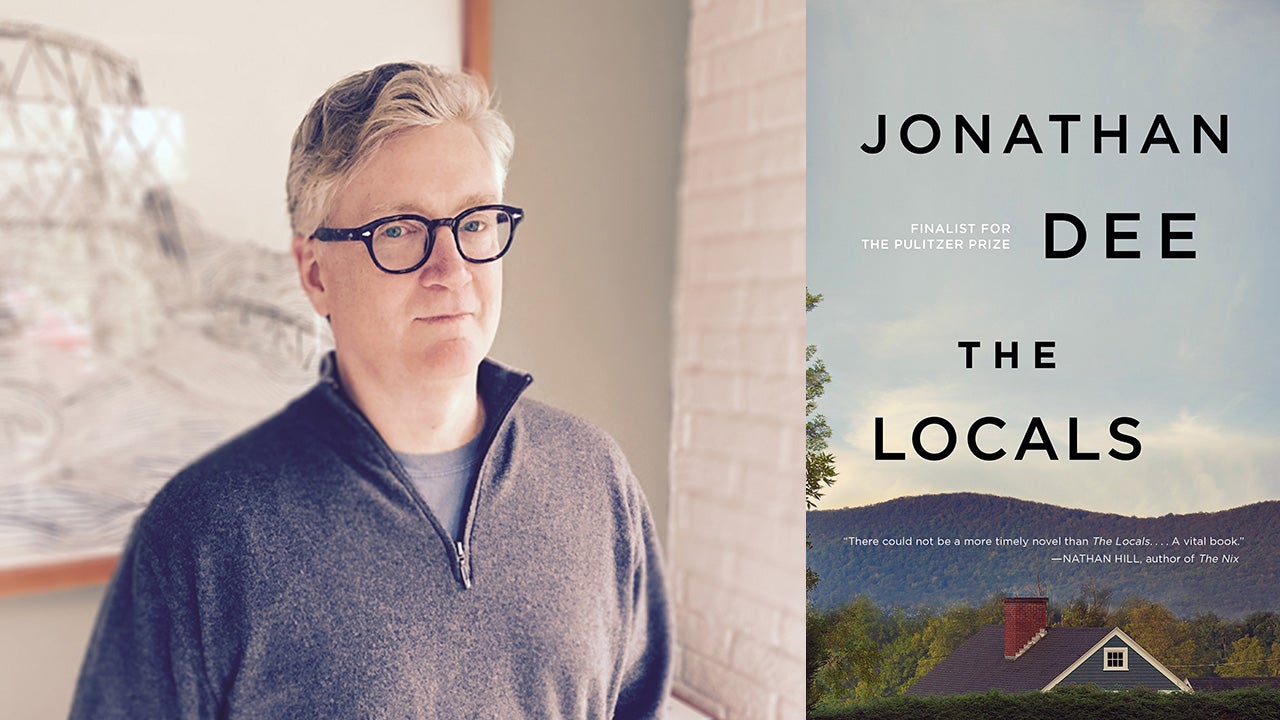
Aspen Words will confer the inaugural $35,000 Aspen Words Literary Prize this year, recognizing a work of fiction with social impact. Twenty nominees are still in the running, and the diverse list includes 12 novels and eight short story collections covering a variety of critical issues and published by an array of presses. While the jury works on narrowing this list down to five finalists and a winner, Aspen Words chatted with the nominees about their work, the importance of fiction in understanding contemporary issues, and the books that have influenced them most.
Jonathan Dee’s novel The Locals is the portrait of a New England town that finds itself in a state of flux. After 9/11, the residents of Howland, Massachusetts are grappling with rising inequality and working-class decline. Their lives are turned upside down when a wealthy interloper runs for local office, promising to have the solutions to their problems. Dee is also the author of The Privileges, A Thousand Pardons, and four other novels.
Why did you write The Locals?
A novel is a form of inquiry, for the writer as much as for the reader. I wanted to try to figure out how certain ideas about governance, about social co-existence, previously considered radical — the dissolution of the safety net, say, or the notion that bigotry and racism are forms of religious freedom — have become, in this young century, mainstream American political discourse. The Locals is a sort of small-scale laboratory where I hoped I could re-create the conditions in which that remarkable shift toward distrust and institutional meanness took place.
What was the most challenging thing about writing this book?
Probably the attempt to stay in psychological contact with such a large cast of characters — many of whom never interact, even though they all live in or near the same small town — while still keeping the narrative itself moving forward.
How might fiction help us to explore contemporary issues?
The easy answer is “empathy.” But that empathetic response one hopes to spark in readers isn’t just a matter of recognizing the humanity in the social or political Other — it’s recognizing that otherness (that privilege, that suspicion, that irrationality, that fear) in yourself, recognizing your own complicity in phenomena of which you might consider yourself a devoted foe.
What book(s) have made you see the world differently? How?
Every good book makes me see the world a little differently, by permitting me to live vicariously, by artfully cajoling me to consider perspectives other than my own. But a recent list might include Zola’s Germinal, Jesmyn West’s Salvage the Bones, Karan Mahajan’s The Association of Small Bombs, Pankaj Mishra’s The Age of Anger, Min Jin Lee’s Pachinko…

